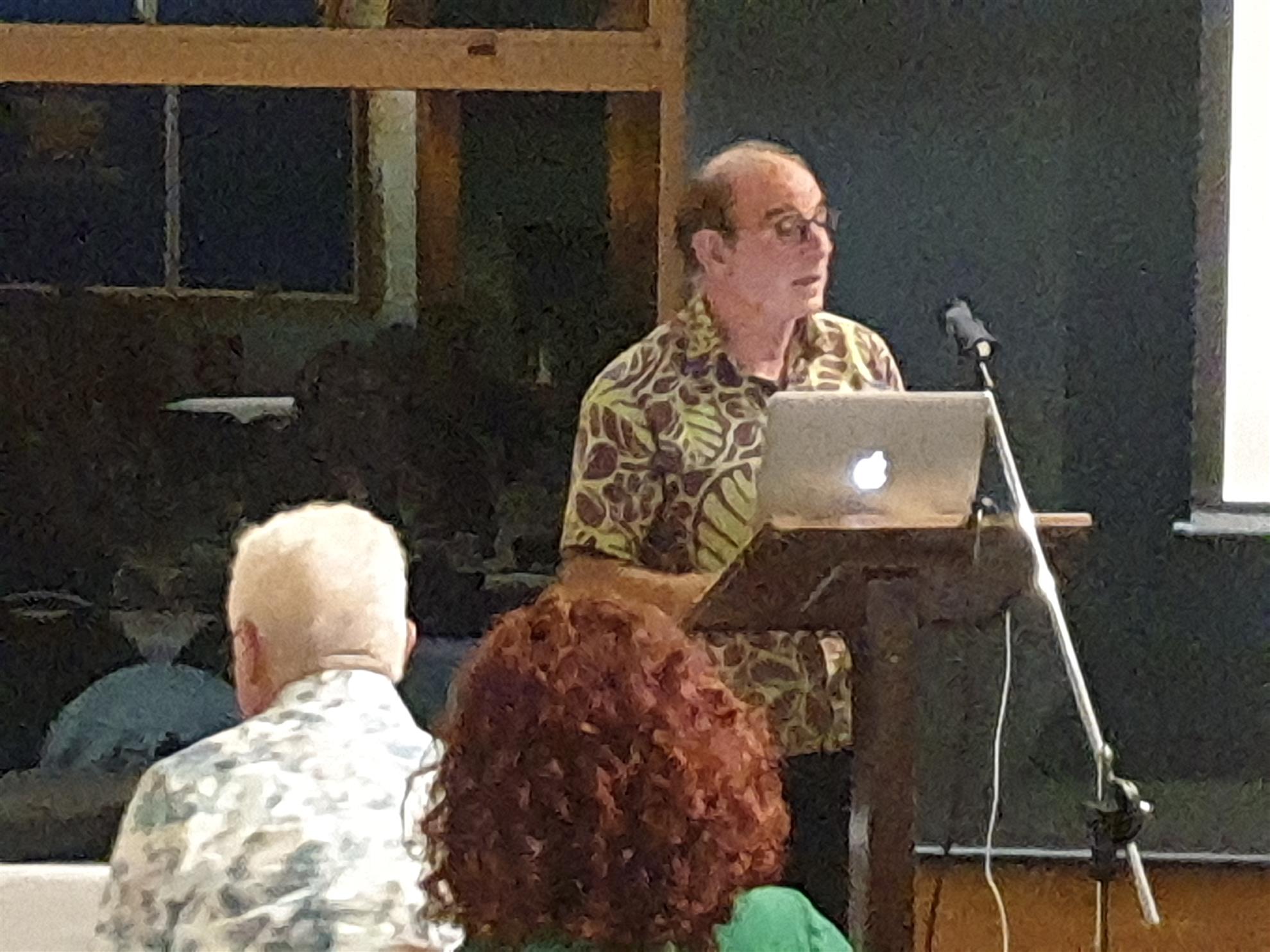
Dr David Galler is an intensive care specialist at Middlemore hospital.
With him at the meeting was Lelani Jackson a member of the Pacifica unit at Manukau. This unit provides health services in the Pacific under contract with the Ministry of foreign affairs.
David’s talk was entitled “Coming-of-age in Samoa” with a nod to Margaret Mead. The theme underlying Davids address was the coming of age of intensive care in Samoa.
David’s visit to Samoa came about as a consequence of the appointment of his partner District Court Judge Emma Aiken to the bench of the Samoan Supreme Court. Something that is a story in itself. As an aside David commented that the most important item of household equipment he and Emma took to Samoa was a para-style pool because it does get rather hot in Samoa.
While in Samoa David took the opportunity to join the intensive care unit at Tupua Tamsese Meaole Hospital in Apia, Samoa's Capital.
Before telling us of his experiences in their hospital David gave us a quick rundown on Samoa, noting there is a population of 200,000 spread out over two main islands Upolu where the bulk of the population live, and Savai’i.
He noted that samoa was a German protectorate between 1919-14 and then from 1914 to independence 1962 a New Zealand protectorate. Sadly during that time New Zealand’s control of the Samoan island was less than optimal, something for which Helen Clark when she was Prime Minister apologised to the Samoan people for.
David made the point that religion is huge in samoa. Churches are everywhere. Many are large and ornate. He made the comment that there is a degree of religious tolerance that to some may seem strange as various faiths and branches of those faiths happily rub along together. Problems only arise if you do not participate in church activities. On Sundays literally everyone attends church dressed in white.
David told us of his experience in the intensive care unit at Tupua Tamsese Meaole Hospital. He saw a lot of things in that unit that he wouldn’t ordinarily see in ICU at Middlemore. Particularly, issues arising from obesity, obesity-related diabetes (a modern day plague) and children presenting with acute infections and illness arising from drug resistant bacteria.
Children in Samoa are dying of diseases that are otherwise treatable New Zealand. David made the grim comment that the ICU is a place to die. Most children with treated in the paediatric section of the hospital and at the beginning of his stay in samoa 80% of those who were placed on a ventilator resuscitator died.
One of the roles that David found himself engaged in was reorganising operations in the ICU. When he arrived he found staff would cluster at one end of the unit and so thinks Phil between the cracks when patients did not receive the ongoing monitoring the required. Strategic plan was put in place which brought about a operational change in the unit. People started moving around the unit with the “bedside trolley” contained or carried everything staff needed for patients and contain patient charts and records that were maintained and updated regularly.
The system changes brought about significant health gains as the ongoing monitoring of patients enabled staff to identify when a patient was progressing in care or not.
The effect of these changes in ICU led to a ripple effect to other areas in the hospital with improved response rates for patients.
As noted above a lot of the work seen in Samoa is not seen in New Zealand. For the uninitiated it was rather concerning. A lot of problems in New Zealand are resolved through early intervention structures that are available for community. Samoa doesn’t have these structures. Indeed Western medicine as a second thought in the villages as traditional healers are used at first instance. Sometimes these village interventions work and sometimes they don’t. It’s when they don’t problems arise.
David had great praise for the staff in the ICU who we felt were very smart worked hard and made working in the unit enjoyable. Because of the workload there were issues with staff burnout and retaining staff..
David’s extensive address was well received by members and guests and led to a a vigourous question and answer session afterwards.
